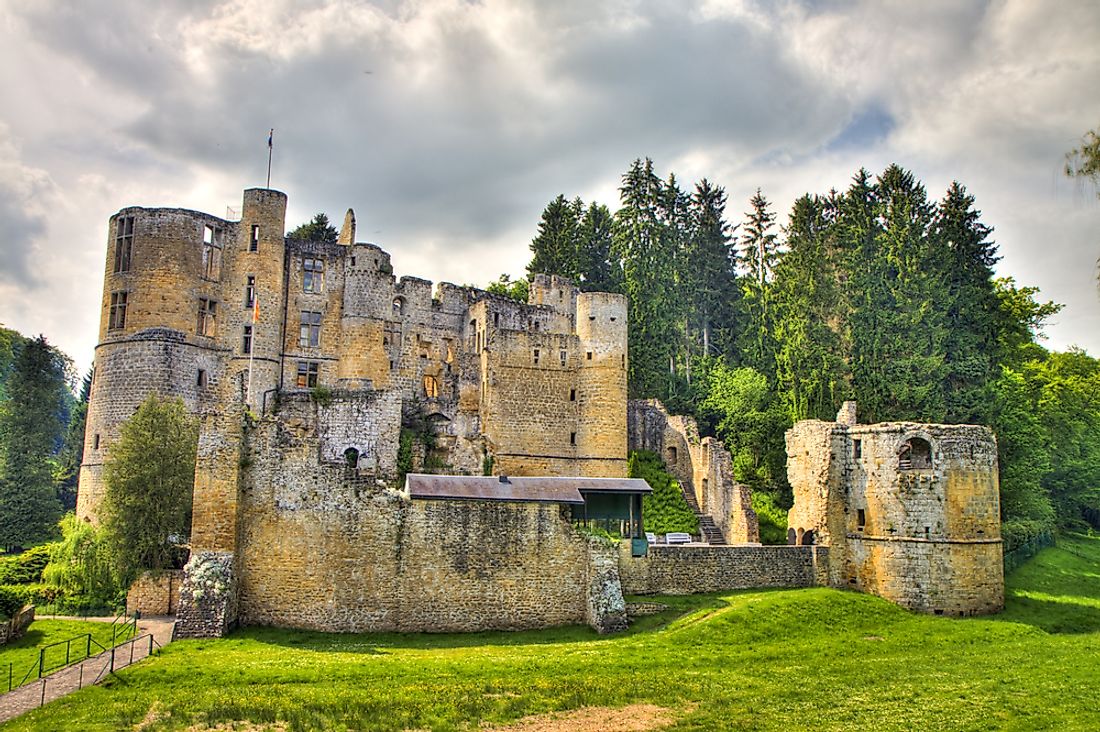The Culture Of Luxembourg

The small, landlocked, Western European nation of Luxembourg has a rich cultural history. The country has a number of folk traditions that were inspired by the dominant peasant culture prevalent in Luxembourg in the past. Today, the country’s culture reflects significant influences of neighboring cultures of France, Belgium, and Germany.
Ethnicity, Language, And Religion
Luxembourg is home to a population of 605,764 individuals. Luxembourgers account for 52.1% of the country’s population. Ethnic minorities living in the country include Portuguese, French, Italian, Belgian, German, Spanish, British, and others. Luxembourgish is the country’s official and national language. It is spoken by most of the population. The ethnic minorities speak their own languages at home. 70.4% of the country’s population adheres to Christianity, especially Catholic Christianity. A large percentage of the population of about 26.8% do not adhere to any religion.
Cuisine
The cuisine of Luxembourg is significantly influenced by the cuisines of France, Belgium, and Germany. The most traditional dishes of the cuisine are, however, simple and of peasant origin. French influence has added many delicacies to the cuisine like French pâtisseries, fruit pies, cakes, etc. Fish is consumed widely in the country. Local rivers act as the source of fishes like crayfish, pike, trout, etc. Fritür is a popular fish dish made of small fried fish that is accompanied by Moselle white wine, a locally produced alcoholic beverage.
Pork and chicken are also part of many Luxembourgish dishes. Thinly sliced smoked Oesling ham served with salad and potato chips is considered a delicacy in the country. Judd mat Gaardebounen is another popular meat dish that comprises of smoked pork collar served with broad beans. It is regarded as Luxembourg’s national dish. Liver dumplings with potatoes and sauerkraut, black pudding with apple sauce, potato pancake, plum tart, onion soup with cheese toast, browned chicken in a spiced white wine broth with vegetables and mushrooms, etc., are some other dishes of the cuisine. Dry white wine and sparkling wine are both produced in the country and consumed widely. Beer is also produced locally and is a favorite drink of the people.
Literature And The Arts
The national literature of Luxembourg developed only recently in the 19th century. Before that, hardly any published works were produced in the local language of the country. The very first book in the Luxembourgish language was published in 1829 by Antoine Meyer. It was a collection of poems. Most other literary works that followed were either poetry or plays. Edmond de la Fontaine is regarded as the country’s national poet. His outstanding works in poetry in Luxembourgish earned him international fame. Batty Weber, another writer from the country, is also noted for his works in literature. He helped develop the Luxembourg culture through his plays, poems, novels, and short stories.
The art of Luxembourg has a longer history than its literature and can be traced back to Roman times. Statues and art in castles and churches across the country provide evidence to this fact. Art with a national flavor appeared in Luxembourg in the late16th century. Until the beginning of the 19th century, most of these artworks were produced by foreign artists inspired by the country’s culture and nature. It was only after Luxembourg became a grand duchy in 1815 that its own people started producing art reflecting the nation’s people and scenery. Impressionism and expressionism shaped Luxembourgish art in the first half of the 20th century and Abstraction inspired art after that. Today, the country’s artists follow various styles and many have earned international fame.
Performance Arts
Luxembourg has a rich music scene with a variety of musical genres having a lot of popularity in the country. Jazz, pop, and rock are a favorite of many Luxembourgers. Many people in the country seek the membership of the national music federation called Union Grand-Duc Adolphe. It has brass bands, folklore associations, music schools, and more under its umbrella. Echternach is a cultural festival held in the country every year and involves dancers dancing through the streets of Echternach.
Sports
Football is the most popular sport in Luxembourg. It was one of the first countries to be introduced to the game. The Luxembourg Football Federation supervises the game in the country at the national level. There are men’s, women’s, and futsal national teams in Luxembourg. It also has a domestic league called the Luxembourg National Division. A number of other sports and outdoor activities like biking, hiking, adventure and climbing, golf, water activities, horseback riding, etc., are enjoyed by the people of Luxembourg.
Life In Society
Women and men enjoy equality in most aspects of life in Luxembourgish society. Women above 65 comprise about 12% of the native population and are usually well off. They can be seen in the streets in the afternoon with their friends enjoying and relaxing in local cafes and restaurants. They also hold considerable authority in the household and often support their adult sons and daughters financially as and when needed.
Marriage rates have sharply dropped in Luxembourg in the past few decades. Nearly one-third of the couples living together are not married. Childbirth out of wedlock is also not uncommon in the country and one-seventh of all births happen this way. Divorce rates are also very high in the country. Households units are nuclear in nature. In some families, older grandparents might stay with their children and grandchildren. However, they are usually financially self-sufficient. In many cases, older people move into retirement homes where they live in great comfort. Life expectancy rates are very high in the country. Many middle-aged and even retired people have living parents.
The birth rate is low in Luxembourg. Couples hardly have more than one or two children. For parents who work outside the home, a well-developed childcare network is available to take care of the children when the parents leave for work.











